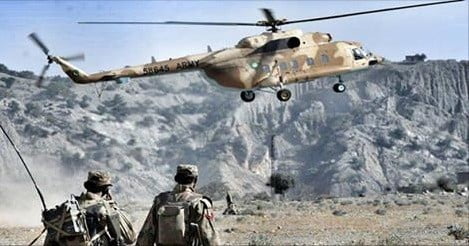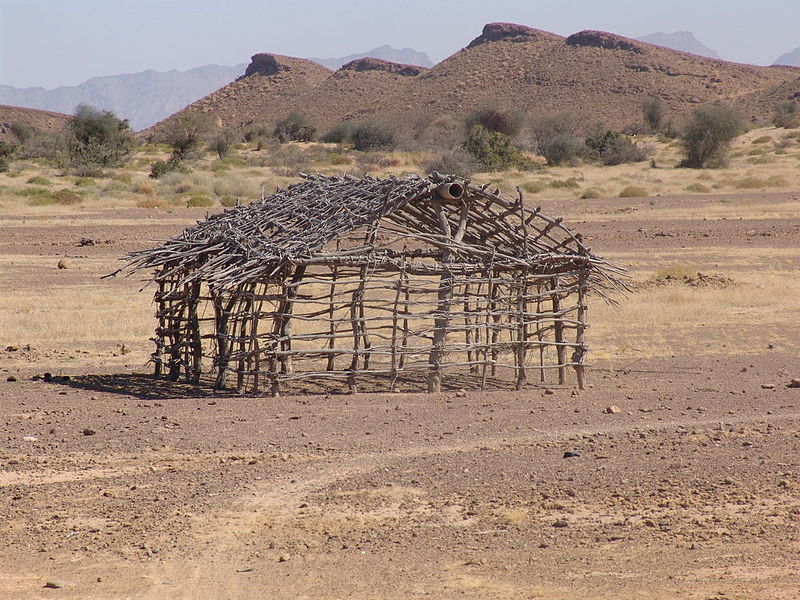
Two of the most important lessons to learn from Pakistan Army’s latest doctrine are: one – the more you bleed in peace, the less you bleed in war and two – it is always better to practice lesson #1 on someone who is weak than on someone who is going to punch back forcefully.
Pakistan army and its masterminds in the ISI’s dirty tricks department are these days’ busy– targeting unarmed, non-combatant civilians in Baluchistan. Technically they are citizens of Pakistan- their passport and nationality documents say so. But this is where the thin line between own and disown begins.
Though rich in oil, gas and mineral resources, Balochistan is one of the most deprived areas of Pakistan.
Interestingly the British had declared Baluchistan an independent country on 11th August 1947, three days before Pakistan itself became independent. But soon after, Mohammed Ali Jinnah, who had previously supported the cause of Baluchistan as a separate state, began strong-arming Baluchistan into joining Pakistan. This was rejected by the both houses of the Baloch parliament but then Balochistan’s independence was short-lived. The sovereign Baloch state lasted only 227 days. Pakistani soldiers launched military operations, killed thousands of people and occupied Baluchistan by force on 20 March 1948. Almost at gun-point Baluchistan was declared the largest and one of the four provinces of Pakistan. Baloch leaders were arrested and forced to sign an Instrument of Accession that merged Baluchistan with Pakistan. The fact remains that Baloch people never voted to be part of Pakistan.
Since that day onwards human rights violations and brutalities by the army and para- military are a routine affair in Balochistan. Pakistan Army, Frontier Corps, ISI, (Inter-Services Intelligence), IB (Intelligence Bureau) and MI (Military Intelligence) have all unleashed terror in Baluchistan.

It has been a sort of never ending war in Baluchistan with ground attacks, artillery shelling and aerial bombardments. Civilian people and livestock have indiscriminately killed. Their houses and villages bombarded and bulldozed – as a form of collective punishment by the Pakistani forces.
Many Baloch political activists have been picked up, tortured, killed and their bodies dumped on the roadside by the intelligence and paramilitary forces like the rogue Frontier Corps. In a few cases Baloch political prisoners have been thrown down from helicopters, a few others are ”missing’.
The people of Balochistan have seen hell all around them in the last 60 odd years that even the prospect of literally going to hell does not scare them.
The fact that Pakistan treated Balochis as second-class citizens added fuel to the fire. As a result Balochis have never really been able to establish their own national identity. Leave aside the danger and threats to life, there is no human dignity and safety for their families and children. Who would like to like in such a country? A majority of the people of Balouchistan think so. “British ne Hindostan pe qabza kiya tha hindostani phir bhi Hindostni to Hindostni hi rahe, British to nahi ban gaye?” (The British occupied India but could they convert Indians into British citizens?) asks Nabeel Baloch.
Marginalized and deprived of their due rights many Balochis are confused as to what their real identity is? “Hum ko to occupied kaha gaya hai hum khud ko Pakistani nahi maante. Documents… woh tu majboori hai”, says Jameel Baloch (We are an occupied territory. We do not consider ourselves Pakistani. Documents like passport…. are a formality and compulsion).

The people of Baluchistan have decided to observe 27 March as a Black Day. It was on 27 March 1948 that Pakistani army launched a military Operation and occupied Baluchistan’s capital Kalat. Several Baloch organisations have given the call for a mass strike on 27 March in the whole of Baluchistan.
The people are in particular, angry over the killing of several women and children in Pakistani Army operation in Mashkay subdivision of Awaran district in Southern Baluchistan. Pakistani Forces carried out massive assault in Mashkey and the surrounding areas early this week.
Mashkay is the largest tehsil of Awaran district in Baluchistan — the largest province which occupies 44% of the land mass and about 4% of the total population of Pakistan.
Mashkey’s importance lies in the fact that it is the village to which Baloch Gorilla Commander Dr. Allah Nizar belongs. Mashkay shot to limelight and became one of the prime targets for Army and the paramilitary forces since 2002 when Dr. Allah Nizar became a senior leader of the Baloch Libration Front. A doctor by profession, Dr Nizar is demanding an independent status for Baluchistan.
With a population of about 100,000 — 90% of Balochi speaking people in Mashkay are Muslims and the remaining 10% are Zikri.
In the recent Pakistani Army attack, Pashtko, Laro, Pajar, Buzi, Say Plan, Kahor villages were heavily damaged. Gunship helicopters heavily bombarded civilian homes followed by looting and burning of homes by the Pakistan Army soldiers. Atleast five people were killed in the attack on Mashkey.
Two of the victims were identified as Yaar Mohammad and Taj Mohammad Syazaai. The others have not been identified yet. The abducted are identified as Heedo s/o Shambo, Mohammad Umar, Iqbal s/o Abdul Wahid, Murad Bux s/o Shambo and Waheed s/o Jamal. Apart from that the Pakistani Forces harassed and tortured the residents including women and children.
This is not the first time Mashkey has seen military operations. In one such attack, Pakistani Forces killed 52 people and injured Dr. Allah Nizar’s mother.

